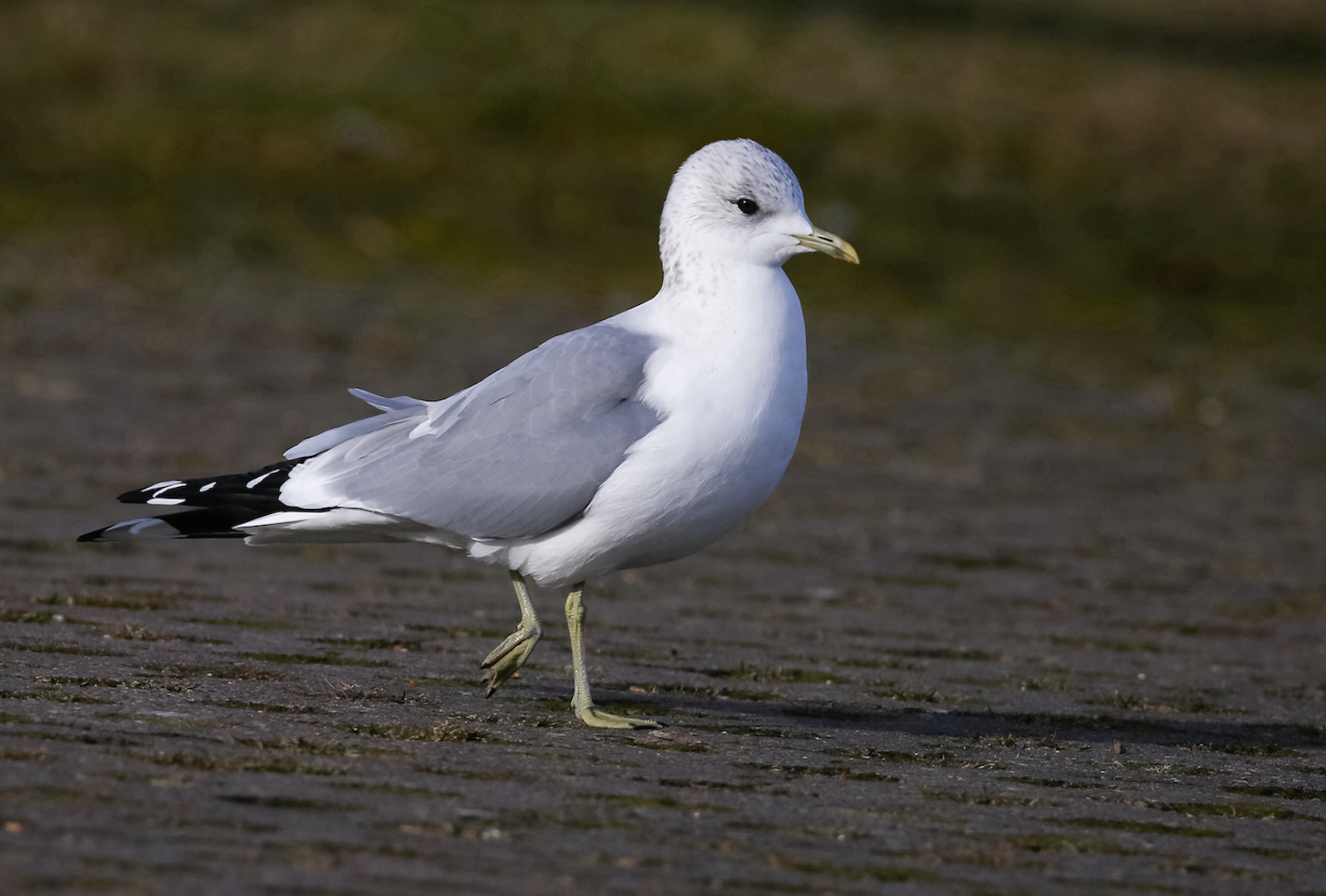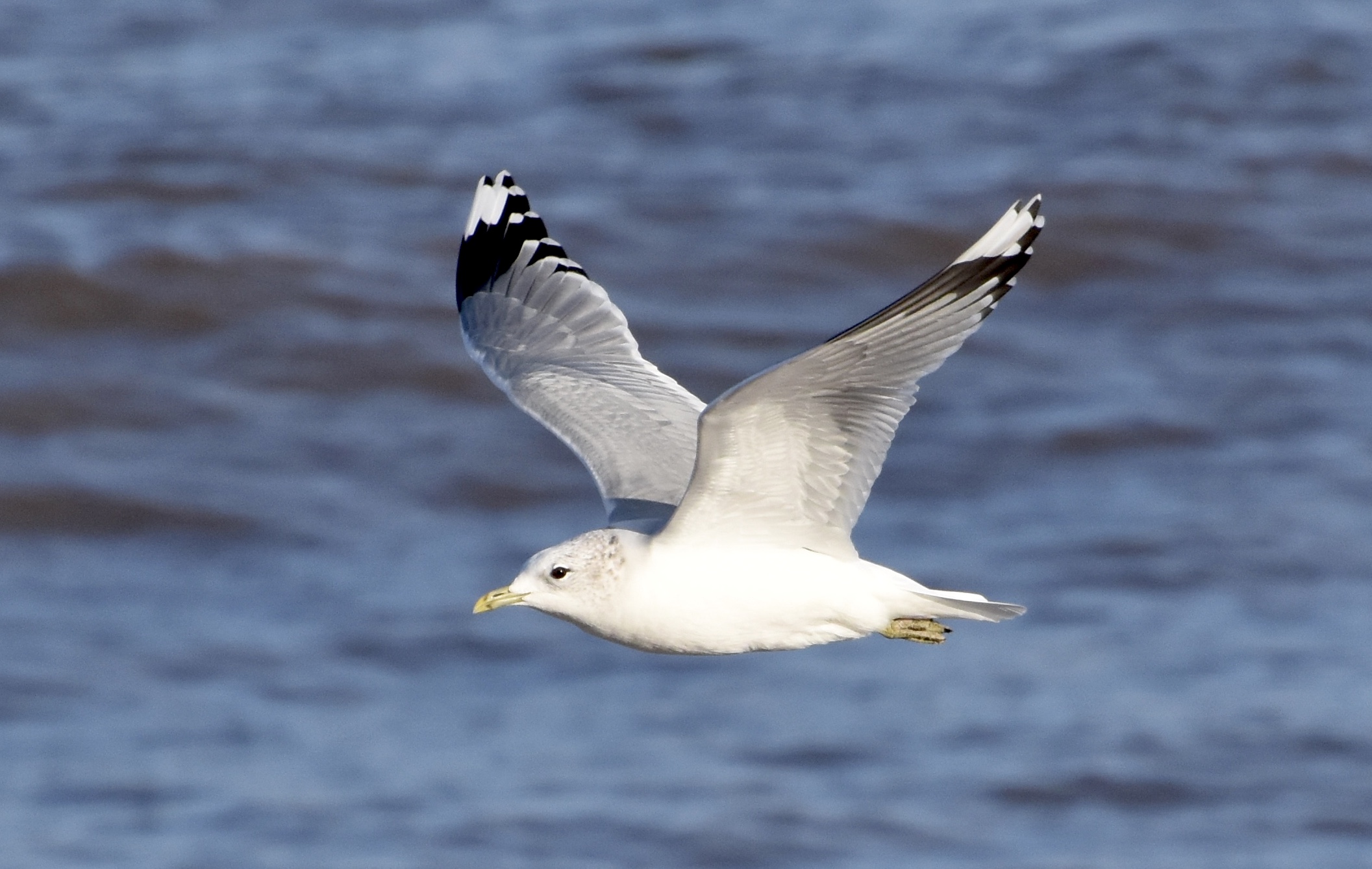Common Gull Larus canus
Very common passage migrant and winter visitor.


Common Gulls: Mablethorpe February 2nd 2015 and at Huttoft car terrace February 25th 2019 (Janet Parker).
Large numbers of Common Gulls arrive from the continent from July-August onwards to feed on the plough after harvest. They spend the winter feeding on the fields being especially common on the Wolds but also in towns and the few remaining domestic refuse tips. Interestingly Common Gull is also the most frequently encountered gull offshore from the Humber mouth in the winter. Counting them is difficult. They frequently leave roost sites on the coast and inland ones like Covenham Reservoir and the former gravel pits around Lincoln before or around dawn and fly back in at dusk. WeBS does not accurately monitor the species as most counts are done on waterbodies when the birds are not there. Very few accurate roost counts are undertaken. The wintering population is well over 10,000 birds per annum, but it would be conjecture to suggest by how much. They usually depart back to the breeding grounds by the end of March and those few that summer are usually 2CY birds. Observations of colour-ringed Common Gulls on the coast have shown that we get birds from Sandinavia and Germany wintering here. As yet, none of the Russian subspecies L. c. heinei has been either photographed or identified via colour rings in the county as far as we know. Something to look out for.
(Account as per new Birds of Lincolnshire (2021), included September 2022)
